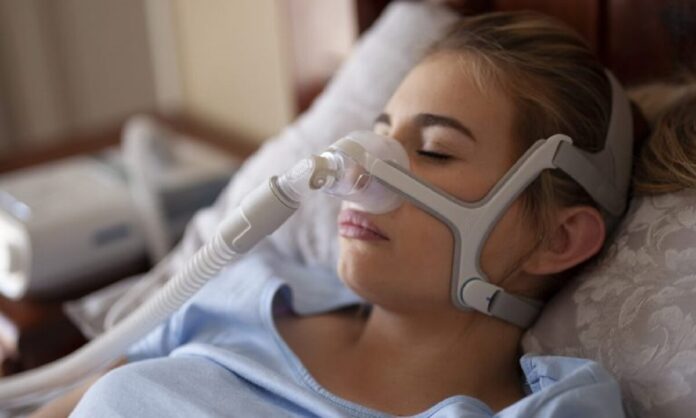Sleep apnea is a common health disorder that causes breathing difficulties while asleep. It’s caused by a narrow airway that reduces oxygen flow to the brain. You end up experiencing unhealthy sleep patterns since your brain alerts you every time you stop breathing and this wakes you up. If you have sleep apnea symptoms, seek sleep apnea treatment immediately.
While it can affect anyone, sleep apnea is more prevalent in adults as they get older or those with other health disorders. If left untreated, sleep apnea can cause serious complications. Sleep apnea can be categorized into two different types — OSA (obstructive sleep apnea) and CSA (central sleep apnea). OSA is more common and is caused by an airway blockage. CSA occurs when the brain fails to send proper breathing signals to the respiratory muscles.
Sleep Apnea Symptoms
Here are a few symptoms that someone with sleep apnea may experience:
- Morning headaches
- Fatigue
- Reduced energy levels during the day
- Trouble concentrating
- Falling asleep at work or while driving (even if you’re not tired)
- Snoring and choking while sleeping
- Insomnia
Examination and Diagnosis
If you’re experiencing sleep apnea, visit your doctor to understand the problem and its underlying cause. Your doctor will work with you to provide a solution so that your body can function at its best during the day.
Read Also: Your ACA Health Insurance Enrollment Checklist
After going over your medical history and discussing your symptoms, your doctor may perform a physical exam. The test helps to check whether you’re exhibiting any physical characteristics of sleep apnea. There are three types of studies:
- Overnight sleep exam (polysomnography)
- Home sleep monitoring
- Portable sleep recording systems like ActiGraph sensors
Treatment
Consult with your sleep specialist before settling on a treatment option. Each sleep apnea treatment has its own benefits and drawbacks depending on the severity of your symptoms. After your diagnosis, your doctor will determine the type of sleep apnea you are suffering from and prescribe the best treatment option for your needs. Sleep apnea treatment options include:
Medication
Doctors largely do not recommend medications as a core treatment for sleep apnea. They may still prescribe some medicines that might help manage some major symptoms such as insomnia and daytime sleepiness.
Oral Appliances
Oral appliances are custom-made devices that help keep your airway open during sleep. They’re fitted in the mouth and attached to the upper jawbone, where they support the soft tissues of your tongue, cheeks, and lips.
Breathing Devices
These provide constant air pressure in your airway to keep it open during sleep. Your doctor may recommend a CPAP machine, an APAP (auto-adjusting positive airway pressure) machine, or a BPAP (bi-level positive airway pressure) machine depending on the type of sleep apnea.
Surgery
You may need surgery if nothing else seems effective at improving breathing when sleeping. While surgery is not a cure for sleep apnea, it may improve your quality of life by reducing the severity and occurrence of symptoms. Surgery options include maxillomandibular advancement, tracheostomy, upper airway stimulation, or surgical removal of tissues from your mouth and throat.
Find the Best Sleep Apnea Treatment for You
If you are experiencing any sleep apnea symptoms, discuss available sleep apnea treatments with your doctor to help reduce further complications. The best treatment for you will depend on previous medical concerns, tolerance levels, and lifestyle habits. The goal is to select a long-term solution that will ease your symptoms and help you sleep better.









